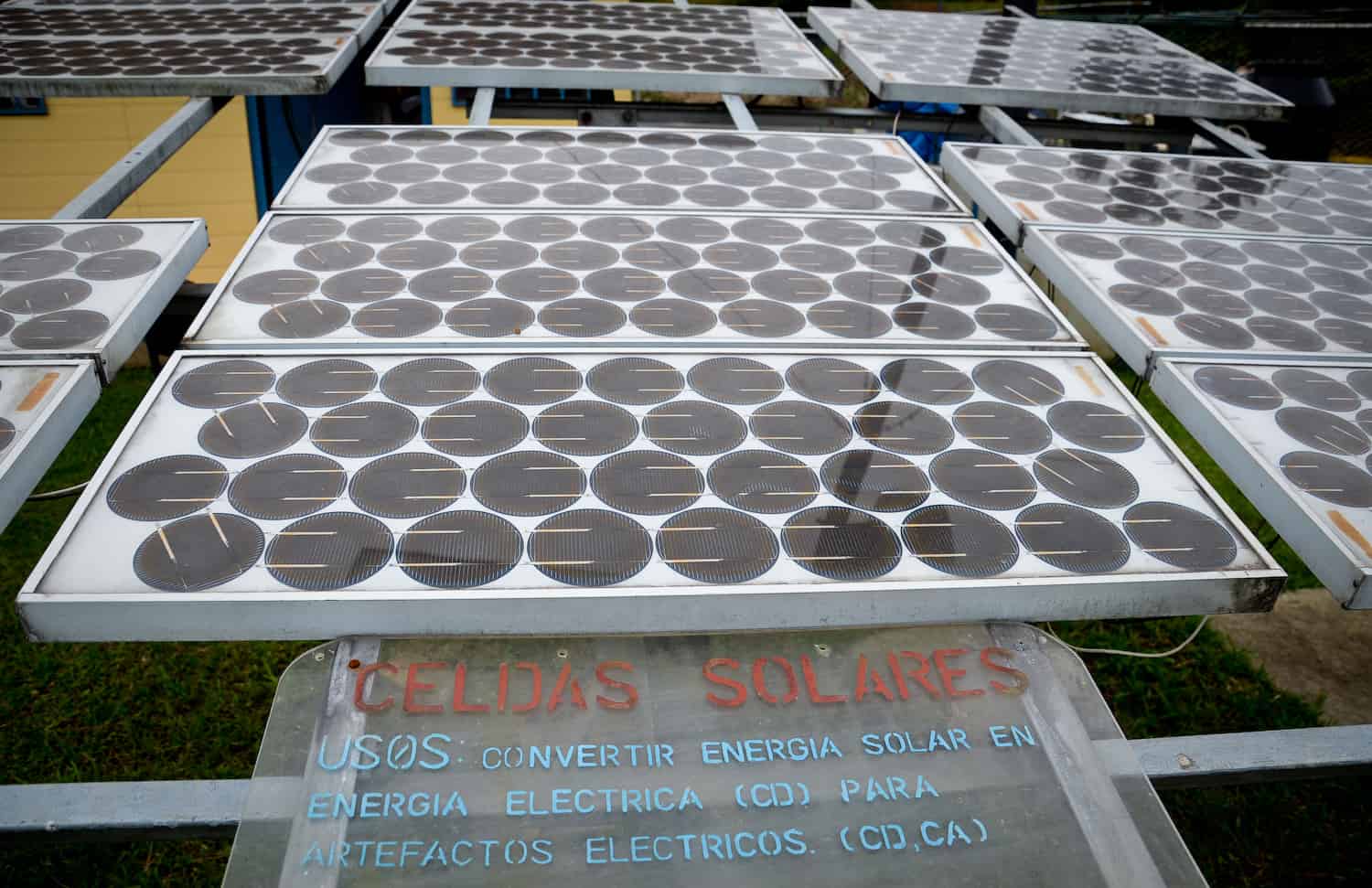Small-scale energy production, such as solar panels, saw a regulatory hurdle removed, and its growth could help combat late dry season energy rationing and reduce the country’s reliance on petroleum.
The country’s electricity regulator, the Public Services Regulatory Authority (ARESEP), announced a series of changes on Wednesday. Owners of micro-generators such as solar, wind turbines and biofuel now have rights to connect to the electrical grid. More importantly, businesses and residences can now be equipped with electrical meters that monitor electricity generation in addition to consumption.
Those aspiring to set up micro-generation will have to comply with technical regulations set by ARESEP. These rights had previously only been available to Costa Rican Electricity Institute (ICE) customers.
Jim Ryan, founder of ASI Power & Telemetry in the northwestern province of Guanacaste, said that the metering system is key to expanding small-scale renewable production in the country. Using the example of a resident with solar panels, Ryan said that on a one-way meter, surplus electricity from a micro-generator would flow back into the electrical grid.
“The customer would be donating to the distributor,” Ryan said in a phone interview. “You further would be punished for having to pay for it.”
The two-way net-metering system allows residents to build up credit with electricity companies.
Ryan said the benefits could help improve Costa Rica’s green image.
“It’s the perfect complement to our stressed hydro-power energy portfolio,” Ryan said.
According to the International Energy Association, Costa Rica generated 72 percent of its electricity from hydroelectricity in 2011. However, due to the country’s climate, Costa Rica resorts to electricity rationing and the burning of petroleum to compensate for the reduced hydroelectric generation in the late dry season. Ryan further said that there are electrical losses as it travels miles from a power plant to consumers, meaning micro-generation will improve efficiency.
The Intergovernmental Panel on Climate Change released a report last Sunday stating that Latin America’s hydroelectricity will face challenges in the coming century due to shifts in precipitation and wet-dry season cycles.








